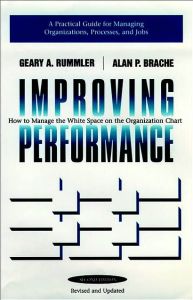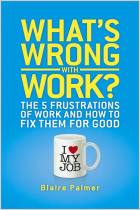
Improving Performance
How to Manage the White Space in the Organization Chart
Recommendation
The more involved you are with process improvement, the more you will benefit from reading this book. Consultants Geary A. Rummler and Alan P. Brache focus your thinking on their process improvement method by including detailed diagrams, practical examples and flow charts. They demonstrate how the traditional use of hierarchical organizational charts creates silos, isolated corporate operations that are separated by white space on the chart and, thus, are literally unconnected. The authors’ “three levels” approach to management can mitigate performance issues within that organizational white space and avoid silos. They present their framework as a reliable method for upgrading organization design, improving processes and enhancing individual performance. Managing the “nine variables” that affect performance can help you develop a better understanding of your organization and build a strategic foundation for continuous process improvement, rather than wasting effort on ad hoc fixes. getAbstract recommends this book to thoughtful managers who don’t need lots of buzzwords
Summary
About the Authors
Geary A. Rummler is a founding partner and Alan P. Brache is president and CEO of The Rummler-Brache Group, which provides consulting and training services to corporate and governmental clients.













Comment on this summary